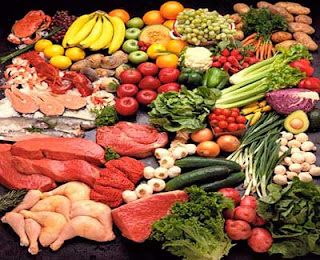You often hear people claiming their hungry. How can your average American be hungry with an overabundance and wide variety of food at their fingertips? While there is a small percentage of people that actually are hungry the vast majority of people in this country that claim to be hungry are really dehydrated or lacking sufficient nutrients. There are three things that will make you feel hungry. One is true actual hunger. Another is dehydration and last but not least is a lack of sufficient macro and micro nutrients.
Water is a key transporter of nutrients throughout the body and dehydration is often mistaken as hunger. Although water in of itself is not considered a nutrient it does contain small amounts of minerals such as calcium, sodium and magnesium. The amount will vary depending on if you consume tap water or various types of bottled water like spring water, purified water, mineral enhanced water and distilled water. You also have the relatively new trendy and in my opinion overpriced vitamin enhanced waters. Dehydration or hypohydration as it's referred to in clinical settings can negatively impact physical performance. With just a 1% drop from optimal hydration you will experience a noticeable reduction in your VO2 max (maximal oxygen uptake). Aim to drink at least half of your body weight in ounces of water to avoid dehydration.
Finally we have Macro and Micro nutrients. Macronutrients are carbohydrates, protein and fat. Micronutrients are vitamins such as A,B, C,D, E and K and minerals like calcium, magnesium, potassium, phosphorus, sodium and iron. If your body is lacking in any of these macro or micro nutrients you will feel hungry regardless of how much food you consume. Ideally you should consume plenty of vegetables particularly the green leafy variety, fruits, lean fatty meats and a modest amount of nuts and whole grains. Some individuals that follow the Paleo diet avoid grains and even believe that grains have contributed to the epidemic of auto immune diseases that are rampant in our society. Consult with a registered dietitian or certified nutritionist to find what nutrition plan is optimal for you and your unique dietary needs.





No comments:
Post a Comment